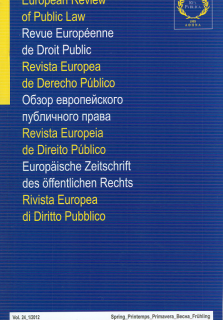
L'EVOLUTION HISTORIQUE DU STATUT DES JUGES EN FRANCE
PHILIPPE NELIDOFF
Professeur d'histoire du droit à l'Université Toulouse 1 Capitole
The legal historian must propose an approach of the judge's status during the long period beginning with the Middle Ages to reach more current concerns. Before the French Revolution, most judges in France are holding a position which has become fully hereditary in the beginning of the 17th century, thus giving them maximum independence. The parliaments develop competencies both in the judicial domain and in the regulatory one and even in the legislative one through the procedure of admonitions. For their part, the intendants, who are commissioners, embody an administrative monarchy and exercise numerous competencies in the fields of administrative justice, police and finance. The Revolution establishes the principle of the election of judges and tries to limit their intervention to the application of the law. Reviving traditional conceptions, the Napoleonic power restores the professional character of justice. This is particularly reflected through the role of the Council of State (Conseil d'Etat) which regulates the administrative litigation while the minister-judge system was never truly abandoned until the end of the 19th century, when judges regain greater independence as shows the Council of State's case law in the domain of culture after 1905.
L'historien du droit se doit de proposer une approche du statut du juge sur la longue période qui part de l'époque médiévale pour rejoindre des préoccupations plus actuelles. Avant la Révolution française, la plupart des juges en France sont titulaires d'un office devenu pleinement patrimonial au début du XVIIe siècle, ce qui leur confère une indépendance maximale. Les parlements développent des compétences tant dans le domaine judiciaire que réglementaire et même législatif avec la procédure des remontrances. De leur côté, les intendants, qui sont des commissaires, incarnent une monarchie administrative et exercent de nombreuses compétences en matière de justice administrative, de police et de finances. La Révolution consacre l'élection des juges et cherche à limiter leur intervention à l'application de la loi. Renouant avec des conceptions traditionnelles, le pouvoir napoléonien redonne à la justice un caractère professionnel. On le voit notamment à travers le rôle du Conseil d'Etat qui régule le contentieux administratif alors que le système du ministre-juge n'est véritablement abandonné qu'à la fin du XIXe siècle, époque où les juges reconquièrent une plus grande indépendance comme le manifeste la jurisprudence du Conseil d'Etat en matière cultuelle après 1905.





















